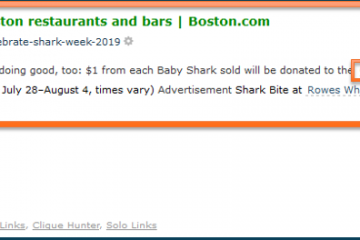This week I finally get to sit down and do something constructive with Bryan Eisenberg, the founder of the Web Analytics association (now renamed the Digital Analytics association). He’s been around forever and it amazes me that so few businesses are able to get to grips with his essentially obvious mantra that business online needs to be underpinned with good decisions based on good data. Recently, the mantra changed a bit though, as we all start to realise that some of the power within the mass of data that some companies have managed to harness, lies not in analysis – but in knowing what the “Big Idea” is that you want to get out of the Big Data.
But that’s not the full point of this post. Bryan gave me a bunch of posts he had written on the subject. As I started to read, it dawned on me that I really wasn’t taking in the words like I used to. I think ADT is growing in all of us involved on the web. Age doesn’t help and the glass of red wine was the final straw. I closed the laptop and left it for a few days.
Well I am glad to report that I have now taken in the articles and found an excellent way to aid memory retention online. I downloaded an app from iTunes onto my iPhone that turns web pages into audio. The idea for the app is that you can turn any news feed into a podcast. That’s useful in itself. But the real “deep” recall occurs when you read AND listen at the same time.
By reading and having computer generated spoken word, you combine two senses, dramatically improving recall. We all use PowerPoint (or in my case “Prezi”) to help us elaborate and communicate in different ways, because a picture can say a thousand words, but we rarely combine senses when reading online. I heartily recommend that you change that now.
Using different senses online to communicate is one of the reasons I use WebmasterRadio.fm to broadcast My Search Kingdom Radio Show. (Next show is on Thursday). Using those senses to RECEIVE information is just as important.
If you want to look at the iPhone App I have started using, it’s called “Speakably”. It looks new, so not perfect yet, but it does the job. What’s more, you can speed up the speed of the spoken word. Going at double speed won’t work just by listening alone, but it is pretty easy to read fast with the audio running at the same time.
It turns out this is especially effective. A few months back I was at the Glasgow Science Museum. A great day out by the way. In there, in the top floor, is a whole interactive experience about sound. One exhibit let’s you hear something spoken very fast. It is hard to understand. Then you hear it at normal speed and of course it make sense. The “Wow” moment comes when you hear it fast a second time. Now your brain has a pattern to follow and this time it all makes sense at the faster speed.
Put a computerised audio over web pages when you want to read fast and take in the content. You’ll be amazed at how much faster… And effective… Your reading will be.
If you want to read the posts Bryan sent me:
https://www.bryaneisenberg.com/ecommerce-moneyball-chasing-the-market-leader/
https://www.bryaneisenberg.com/claiming-your-unfair-advantage/
https://www.bryaneisenberg.com/the-must-have-big-data-tools/
https://www.bryaneisenberg.com/how-to-catch-up-to-and-compete-with-amazon-com-video/
https://www.bryaneisenberg.com/big-data-does-not-mean-big-amounts-of-people/
Pass the word. Please share the post if you find it useful.
At SES, Bryan and I are heading up the “Big Data” Meet the Experts table at lunch in San Francisco. This year I have been pushing Majestic within a new but growing conference circuit based around Big Data and Predictive Analytics and along the way I have found some great ways to mine Big Data.

0 Comments